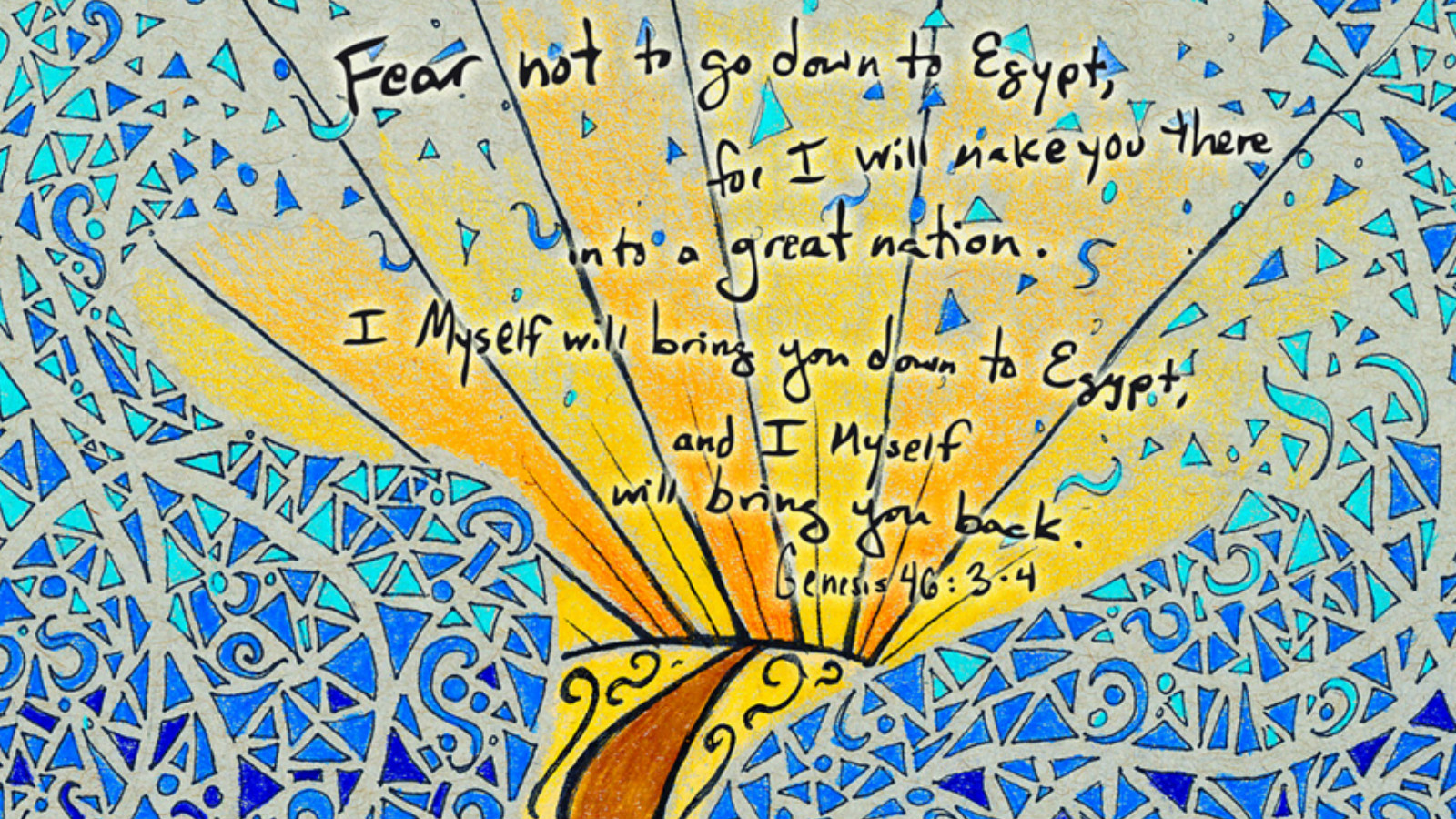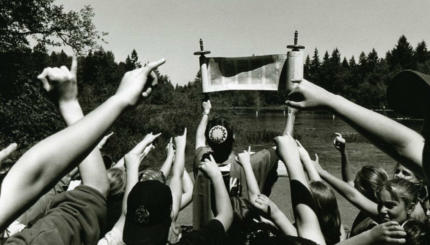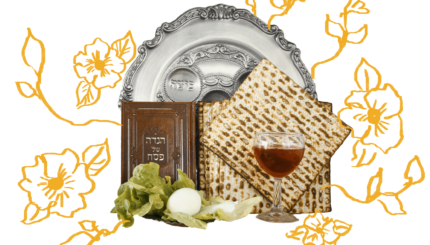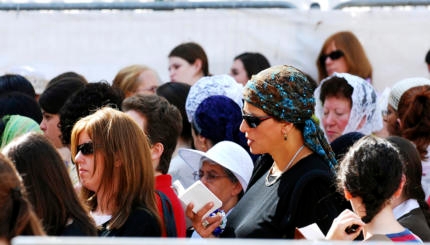Following is a summary of the special Torah readings and Haftarah readings for the days of Passover.
First Day
Torah Reading
In the Torah reading (Exodus 12:21-51), Moses instructs the elders of Israel in all of the laws of Passover. All generations to come are to observe the Passover traditions. In addition, the children of succeeding generations are to be instructed at Passover as to the origin and significance of the festival.
The Torah reading concludes with the last of the 10 plagues: the slaying of the Egyptian firstborn. Pharaoh summons Moses and Aaron and tells them that he wants them out of Egypt as soon as possible. Moses and Aaron comply, and the children of Israel begin to make a quick exit, not allowing time for their bread to rise.
Haftarah Reading
The Haftarah is taken from the Book of Joshua (Joshua 5:2-6:1, 6:27) and describes the historic Passover that the Israelites observed at Gilgal after they had crossed the Jordan River. It was the first celebration of Passover in the Holy Land. In preparation for Passover observance, all of the Israelite males were circumcised. They then ate the first matzot made from wheat in the Holy Land. [In the Reform tradition Isaiah 43:1-15 is the prophetic reading for the first day of Passover. This reading, which contains a reference to crossing the Red Sea, is a reminder of God’s role as Redeemer.]
With your help, My Jewish Learning can provide endless opportunities for learning, connection and discovery.
Second Day
Torah Reading
In the Torah reading (Leviticus 22:26-23:44), Moses instructs the Israelites in the observance of the Sabbath and festivals. The reading presents a comprehensive description of the sacred seasons of the Jewish year, including Passover, Shavuot, Rosh Hashanah, Yom Kippur, and Sukkot.
Haftarah Reading
The Haftarah for the second day of Passover (II Kings 23:1-9, 21-25) was chosen because of its account of the great Passover celebrated after King Josiah’s reformation. In the 18th year of his reign (621 BCE), during the course of repairs to the Temple, a scroll of the Torah (possibly the Book of Deuteronomy) was discovered. King Josiah was so stirred by its message that he proceeded to vigorously cleanse the Temple of all idolatry. Part of the account of his reform prefaces the description of his celebration of Passover in the Haftarah, and thus its selection as the Haftarah of the second day of Passover.
The Intermediate Shabbat
Shabbat Torah
(Exodus 33:12-34:26) After Israel worshipped the golden calf, Moses shattered the first set of tablets. Now Moses again ascends Mount Sinai in order to receive the new set of tablets. Moses pleads for God’s assurance of support. God reassures Moses and also reveals His 13 divine attributes. Moses then brings down a new set of tablets with the Ten Commandments.
Shabbat Haftarah
The Haftarah is taken from the Book of Ezekiel (Ezekiel 37:1-14). The prophet finds himself in a valley of dry bones and, under the vivifying effect of God’s spirit, the bones knit together and become covered with flesh. Ezekiel understands this vision to mean that the people of Israel, having been exiled to Babylon, will again be reborn as a nation.
Both the fact that Passover, recalling past deliverances, looks forward to future redemption and an old tradition that the resurrection of the dead will take place during Passover determined the choice of this passage as the Haftarah for the Intermediate Sabbath of Passover.
Seventh Day
Torah Reading
The Torah reading (Exodus 13:17-15:26) describes Israel’s experiences following the exodus. Pharaoh mobilizes the Egyptian army and begins his pursuit of the fleeing Israelites. When Moses and the children of Israel reach the Red Sea, Moses raises his rod, the waters split apart, and the Israelites are miraculously saved. When the Egyptians reach the water, they become bogged down, sink to the bottom, and drown. Moses and the children of Israel sing a magnificent song of thanksgiving.
Haftarah Reading
The Haftarah (Second Samuel 22) connects to the theme of thanksgiving in the Torah reading. In the Haftarah, King David composes his own song of thanksgiving to God for all of his victories and deliverances from the enemy. The Haftarah concludes with this sentence, which is also included at the conclusion of the grace after meals, “A tower of salvation of His king, who shows mercy to His anointed, to David and to his heirs forever” (Second Samuel 22:51).
Eighth Day
Torah Reading
The Torah reading for the eighth day of Passover (Deuteronomy 15:19-16:17) deals with a variety of laws, including those related to tithes, the year of release, the release of slaves, and a comprehensive description of the three pilgrimage festivals.
Haftarah Reading
The Haftarah, from the Book of Isaiah (Isaiah 10:32-12:6), begins with a prediction that Assyria will be defeated. This prophecy comes true. The Haftarah continues with Isaiah’s message of hope that the Israelites will again be gathered together from lands of exile and return to Israel.
The Haftarah also contains the famous great vision of the Messianic Era when peace and harmony will reign supreme among all people. Because the Haftarah contains several allusions to the redemption fromEgypt, it was especially chosen to be chanted on the last day of Passover.
The Song of Songs
It is customary to read the biblical book Song of Songs on Passover. Ashkenazi Jews read it on the intermediate Shabbat of Passover (or, if there is no intermediate Shabbat, the final day of the holiday), while Sephardic Jews usually read it on the final day of the holiday. Italian Jews read it on the first a second days as part of the evening (Maariv) service. [This paragraph has been edited by MJL to include non-Ashkenazi traditions.]
Rabbinic tradition interprets the book as a love song, where the “beloved” is taken to mean God and “the bride” to mean the congregation of Israel. This tradition made the Song of Songs especially appropriate to Passover, because it marked, as it were, the beginning of the courtship of Israel and God before, metaphorically speaking, they became finally wedded at Mount Sinai by Israel’s acceptance of the Torah.
Learn more about why we read Song of Songs on Passover.
Another reason given for the reading of this book on Passover is that it is a song of the spring. To the poet and the singer, spring is synonymous with hope and happiness. A people’s hope lies in its freedom and its attachment to the law of God. This, too, is the lesson of Passover, for which the people of Israel have fought since they left Egyptian servitude, and this is the eternal message it wishes to convey to the whole of the human race.
Excerpted with permission from Every Person’s Guide to Passover (Jason Aronson, Inc).
Haftarah
Pronounced: hahf-TOErah or hahf-TOE-ruh, Origin: Hebrew, a selection from one of the biblical books of the Prophets that is read in synagogue immediately following the Torah reading.
Shabbat
Pronounced: shuh-BAHT or shah-BAHT, Origin: Hebrew, the Sabbath, from sundown Friday to sundown Saturday.
Torah
Pronunced: TORE-uh, Origin: Hebrew, the Five Books of Moses.



